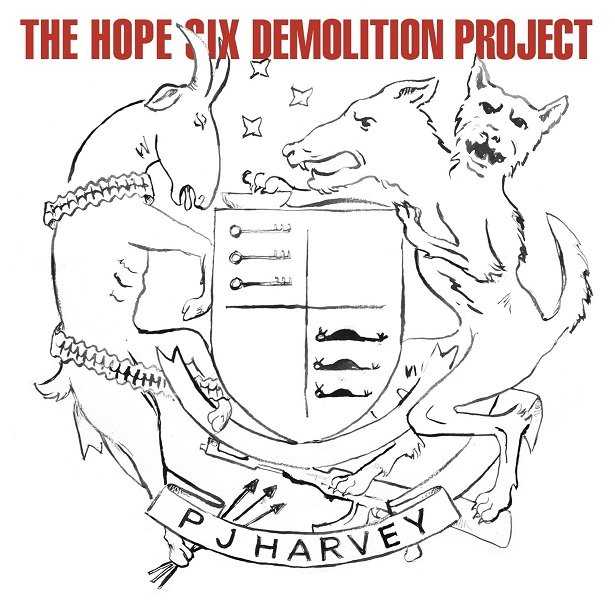
Where to go next when your last album swilled so poetically on the bruised blood of your motherland’s warring past, and was subsequently flowered heavy in critical praise like a bed of English roses glowing on a blue summer’s day?
In PJ Harvey‘s case, following on from her 2011 Mercury Prize-winning ‘Let England Shake‘, you up sticks and hop around Kosovo, Afghanistan and Washington D.C. for a few years with photojournalist friend Seamus Murphy, document whatever injustices of poverty and conflict you encounter along the way, and prune it all down to a ninth album, ‘The Hope Six Demolition Project‘.
Even before its release, the album’s content was cinctured by controversy. ‘The Community of Hope‘, put out as a single last month, depicts the Ward 7 neighborhood in Washington D.C. as, “a well-known pathway of death”, and, “just a drug town”, lyrics taken verbatim from Harvey’s Washington Post guide who drove her around the area. Though not quite on the grand scale of offending an entire country as Borat once did Kazakhstan, these downcast depictions flared the irk of Ward 7 council members indignant at such immortalisation of their turf.
And so, Harvey’s plight into desolation goes on. Grey-smudged vignettes flow through the record in currents of blunt, morose statements. Mortar holes and white jawbones, sticks in shit and syringes are a few snippets of the harrowing sights seen on ‘The Ministry Of Defence‘, a song as impending in sound as in vision.
“A tableau of the missing, tied to the government building, thousands of sun-bleached photographs”, she sings on handclap-steered ‘The Wheel‘, while a woman in a wheelchair sips, “a new painkiller for the native people”, presumably a tipple out of a paper wrapper, on the brassy ‘Medicinals‘.
Inner Yoko Ono-warbles (albeit less shrill) are channelled on ‘A Line In The Sand‘ with falsettos both honeyed and reproachful – if we don’t learn to stop murdering, she warns, then we’re a sham – while ‘The Ministry of Social Affairs‘ slow blues stomp is gratifyingly bitten by the rowdy bark of Bob Dylan‘s ‘Rainy Day Women #12 & 35‘.
Harvey might sell as a solo artist, but community is the operative word here. On almost every number her vocals buoy themselves on top of a hoard of backing singers, and to great effect. Best of all are the tribally shuffles of ‘The Orange Monkey‘, both hypnotic and revealing of her restless state of mind for the entire album, one that “must travel back in time” and “write down what I find”.
Much like the ticketed few last year who watched her record the album inside a one-way glassed box in Somerset House, Harvey peers into a world she doesn’t belong to and offers back subjective comment. (Yes, the recording was a PR stunt but it was also conceptual art, folks.)
This is Harvey’s homily, emboldened by empirical stints on the streets, on the state of today’s world. Attempts to hold up a mirror to the elite’s face with a set of contentious (and some of her finest to date) songs are likely to be met with as much protest as the protest in them; after all, what does a singer know about politics? But it’s an artist’s prerogative to poke when others just look.
And when Harvey prods, the imprint is felt long after.


